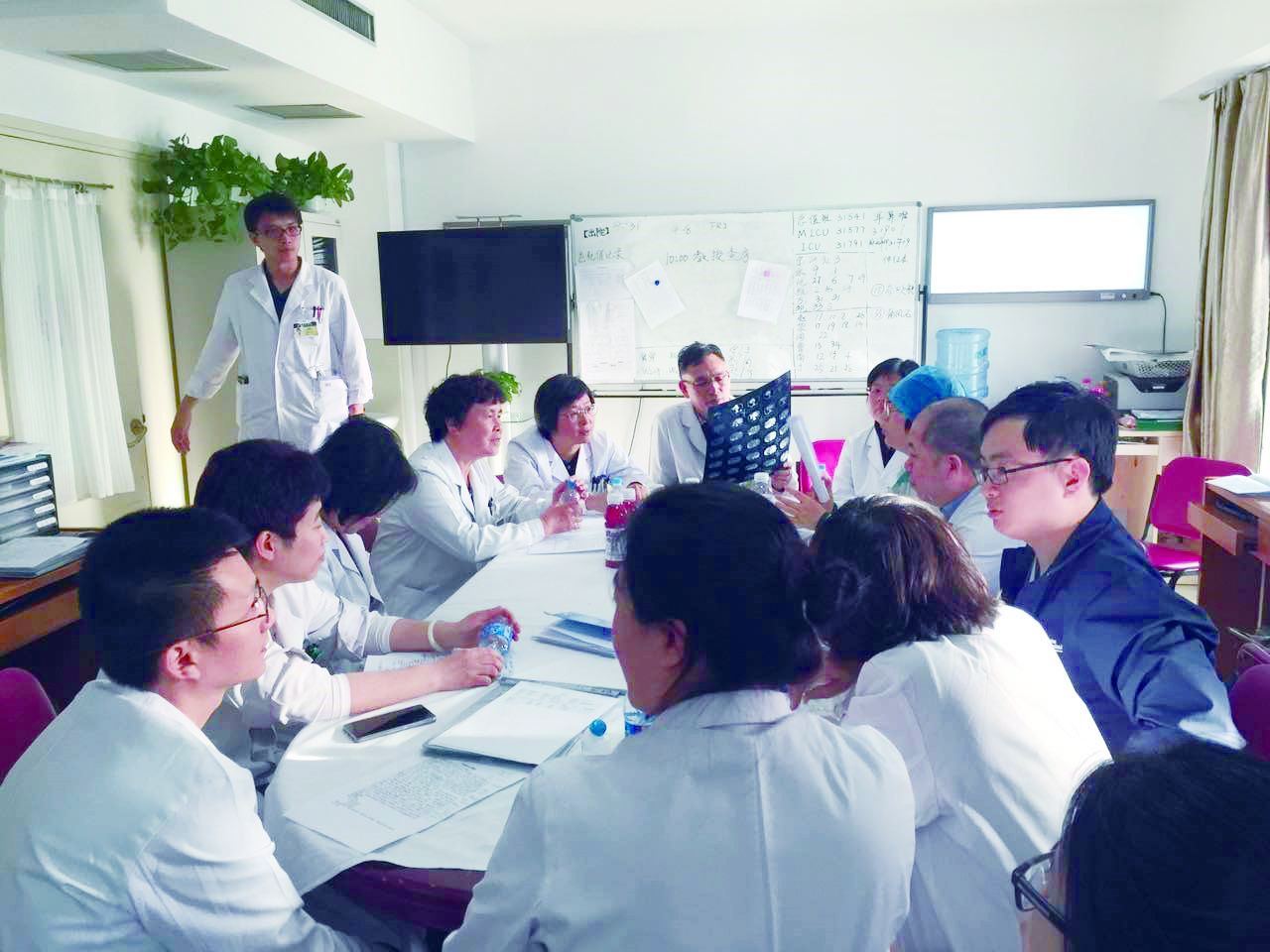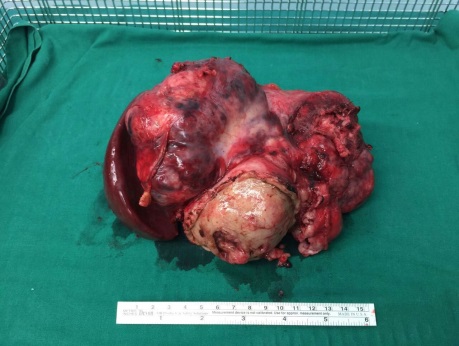
Multidisciplinary consultation on April 8.
In February, Zhang Xiaotong, a university freshman in Seoul, South Korea, found she suffered from obviously declined memory, and suddenly forgot her once fluent Korean language. By the end of February, her mental disorder worsened: she forgot to pull up her pants after using toilet, was in unusually high spirit, slept not more than one hour each night and often talked nonsense. In March, her family took her to doctors and a big tumor in her belly was reported. She was referred to PUMCH.
On April 1, she displayed epileptic fits, four times in little more than ten minutes. Apart from tumor and encephalitis, she also had problems as endocrinal disorder, anemia and rash. Zeng Xuejun, director of the Department of General Internal Medicine, who is an expert on rare, difficult cases, volunteered to accept Xiaotong into his ward on April 6.
On April 6-8, the Department of General Internal Medicine ran against time and, supported by Huo Li, deputy director of the Department of Nuclear Medicine and Tong Anli, associate professor of the Department of Endocrinology, completed within three days a series of examinations that usually yield results in a month in regular clinics; three multidisciplinary consultations were called, and the high-level consultation on the afternoon of the 8th lasted as long as two hours, with more than 10 departments participating.
A huge tumor was found behind Xiaotong' s peritoneum, highly suspected as malignant. Obvious encephalitis symptoms led to high suspicion of autoimmune encephalitis caused by tumor, but tests showed no definite irregularities in immunological indicators. Anemia was serious, and hemoglobin kept dropping. As the disease progressed, the body functions of the patient were declining. The conclusion of several rounds of consultations was firstly surgery to remove the tumor and then to decide the next step according to pathological and post-operative conditions.

The operative specimen has a diameter of 16cm.
According to Professor Li Binglu, Department of General Surgery, the tumor was gigantic but of unknown origin and special location: it was behind the peritoneum and affected many organs, and it was quite difficult to remove it completely; on the other hand, the patient was of RH-negative blood, which would put her life at risk if any vessel breaks during the operation which usually features big blood loss.
Xiaotong's father called for help through the internet and within three days 16 people donated blood successfully, some of them even flew to Beijing for the donation.
On April 11, the medical team performed an emergency operation on Xiaotong. The operation was carried out by Professor Li Binglu and Professor Zheng Chaoji, and was supported by departments of anesthesiology, surgery and blood transfusion. After more than six hours, a 15*20cm tumor was removed intact.
On the afternoon of April 18, 11 doctors from departments of general surgery, general internal medicine, neurology, endocrinology, pathology, radiotherapy, dermatology and internal medicine for tumor gathered together to decide the post-operation treatment. When the hormone level became steady, radiation and chemo would be applied timely.
On April 28, two weeks after the operation, Xiaotong displayed obviously improved state of mind. She could talk, sit alone by the bed, stand for a short time, and urinate by herself. She showed no twitch, recovered her day-night rhythm, could go to sleep by herself and her temperature also dropped gradually to normal level.
